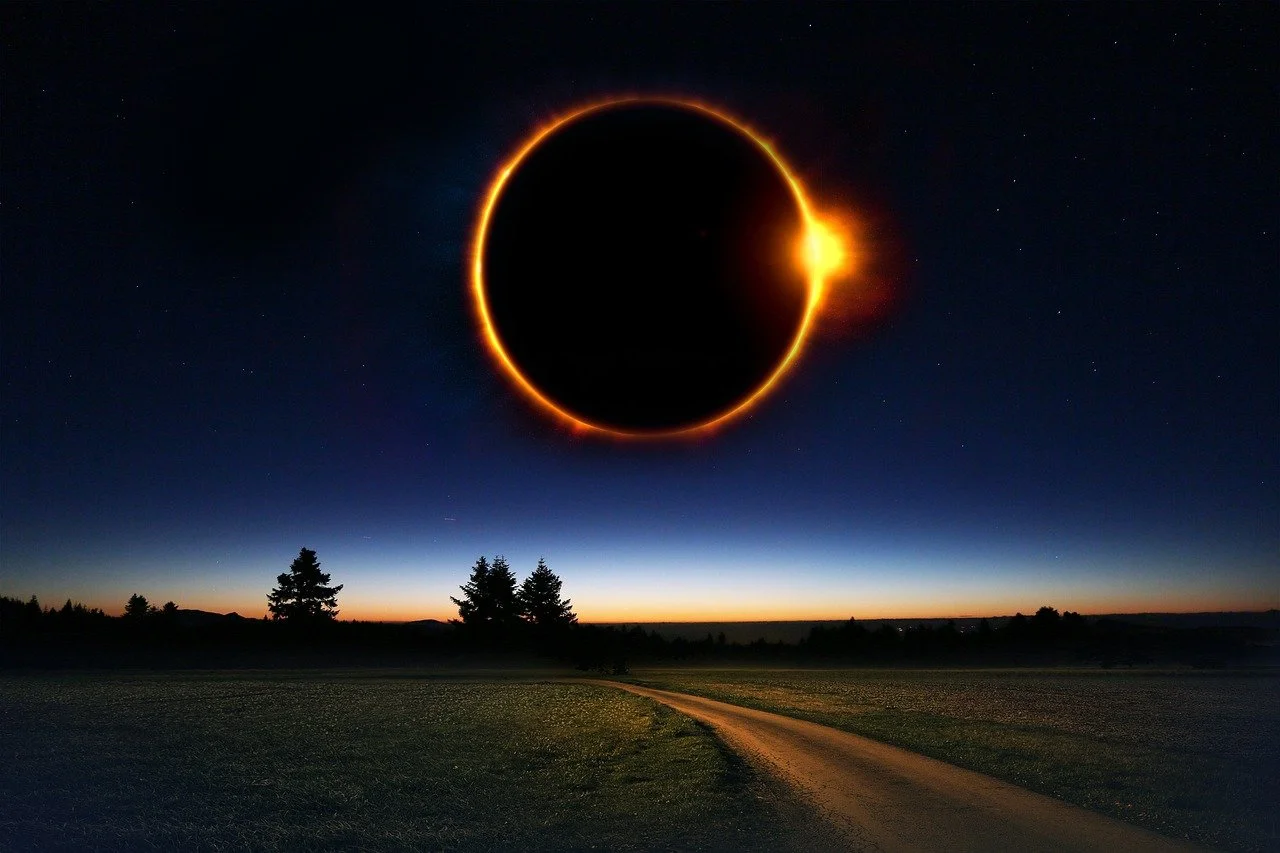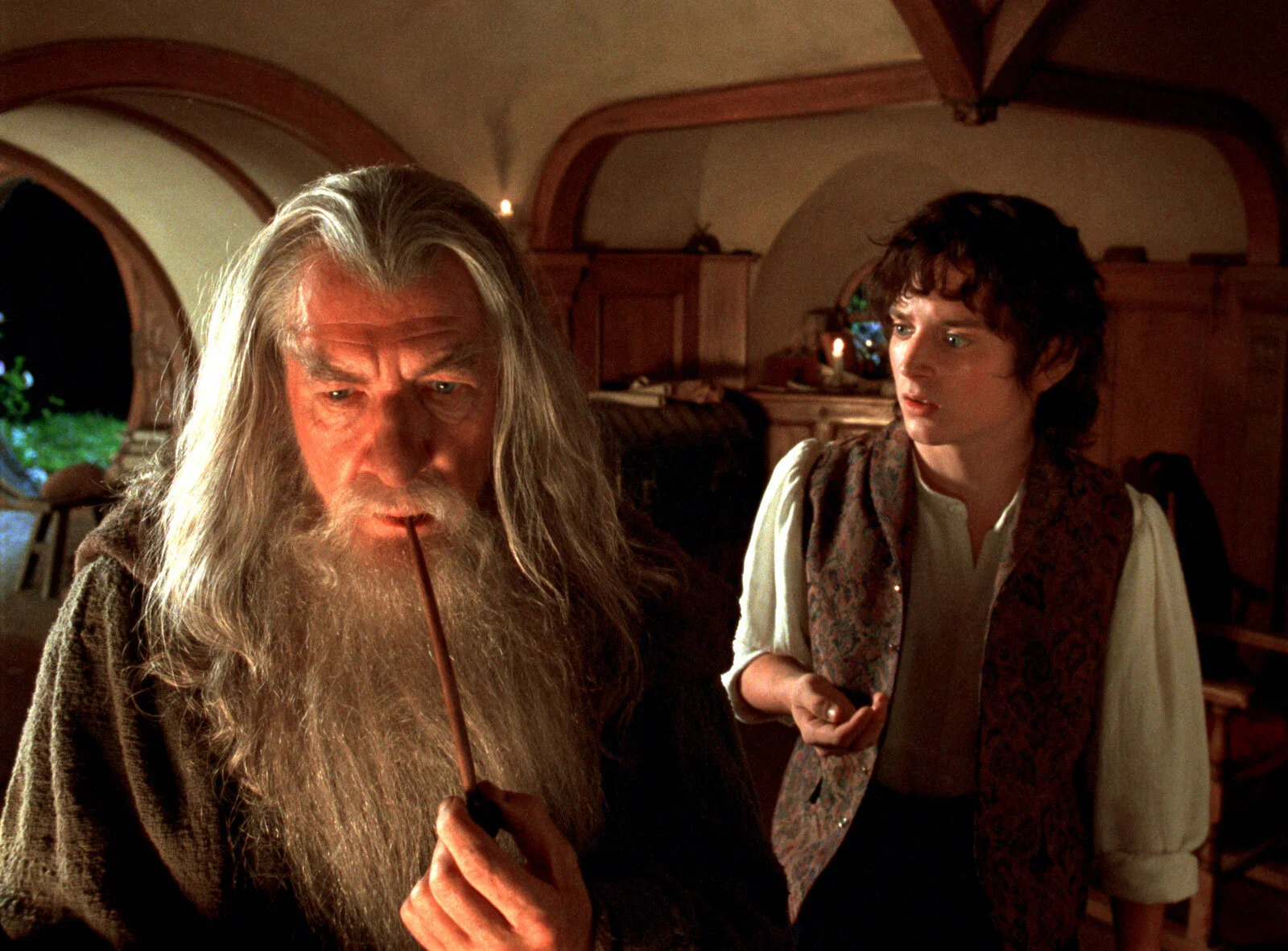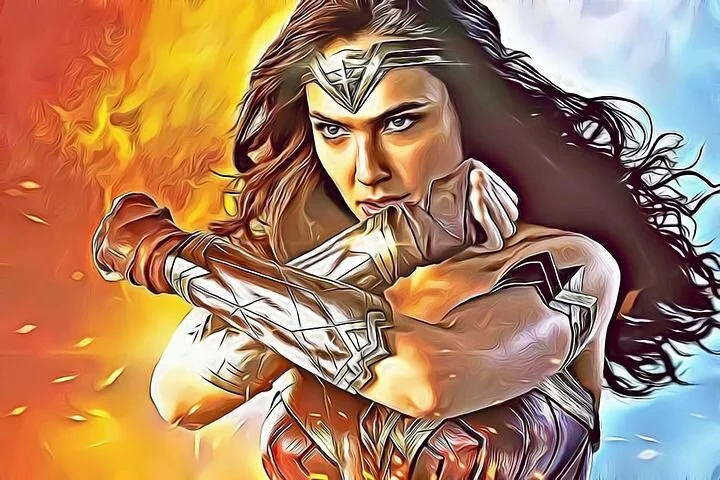Elon Musk: Simulation Hypothesis VS Moksha Houses 8 and 12
/Reality or Illusion: The Cosmic Question
Is the reality we experience real, or are we just characters in an elaborate cosmic program? The Simulation Hypothesis suggests our entire universe might be an advanced computer simulation created by a technologically superior civilization. This concept has captivated science fiction for decades, but also the minds of scientists, philosophers, and tech visionaries in recent times.
Elon Musk is one of the most prominent advocates of the Simulation Hypothesis.
In this exploration, we'll examine Elon Musk's Vedic birth chart to uncover the astrological signatures that incline him toward this simulation worldview. More importantly, we'll reveal both the illuminating insights and the shadow aspects of these karmic patterns.
Join me in decoding the cosmic blueprint behind one of today's most controversial human beings and his philosophical views, and what it reveals about the nature of consciousness itself.
Maya VS. Simulation: Similar Questions, Different Paths
Long before science fiction conceived of the simulation hypothesis, ancient Vedic sages revealed a profound concept called Maya, dating back thousands of years in India's spiritual tradition.
Maya is the cosmic illusion that veils our perception of reality. It's the creative force that generates our entire phenomenal world – the forms, sensations, and experiences we take as "real." Yet, according to Advaita Vedanta, this reality is not the ultimate truth.
Think of Maya as a cosmic veil draped over existence, concealing our true nature. Behind this veil, we are not separate from each other or nature but different expressions of Brahman – or the one ultimate, non-dual reality that encompasses everything.
Each planetary position, house, and aspect in our birth chart reveals the unique patterns of Maya’s cosmic play operating in our lives.
While both the simulation hypothesis and Maya emerge from vastly different cultural and historical contexts, they converge on a profound question: Is the reality we perceive “Real”?
But here lies the divergence:
The simulation hypothesis frames our existence in technological terms - we might be a digital player in an advanced video game.
Maya, however, sees our illusion as part of a cosmic spiritual process. This ancient concept doesn't frame reality as a technological construct but as a divine play of consciousness itself.
Their proposed paths forward also couldn't be more different:
The simulation perspective typically drives technological advancement and strives to master the system from within. This approach maintains the fundamental illusion of separation between self and other, reinforcing the very duality it claims to transcend while seeking to gain advantage within the game rather than recognizing its illusory nature.
Maya's wisdom points toward transcending the illusion. The solution isn't to improve the illusion but to see beyond it to our fundamental oneness with all of existence. Vedic astrology enables us to understand the cosmic patterns that shape our experience, and we recognize ourselves as both characters within Maya's divine play and the consciousness witnessing it.
One path seeks mastery within the illusion: the other, liberation from it entirely.
The famous movie The Matrix about the possibility of humans living in a simulation suggests that we have to make a choice between the real world and the artificial world. Cypher, for example, chooses to return to the illusion within the Matrix, but this time as “someone important like an actor”. And the protagonist Neo takes the more difficult road by taking the red pill.
Dharma, Artha, Kama, Moksha: Four Goals of Vedic Life
In the Vedic birth chart, the cosmic illusion is most clearly revealed through houses 4, 8, and 12 and the corresponding water signs of Cancer, Scorpio, and Pisces. These watery domains govern our relationship with transcendence, offering gateways beyond Maya through emotional depth, transformation, and ultimate dissolution of boundaries.
Vedic astrology divides the 12 houses into four fundamental goals of life known as Purusharthas: The Dharma Houses (1, 5, 9) reveal our capacity for self-expression and finding meaning and purpose. The Artha Houses (2, 6, 10) show how we acquire resources and care for our physical needs. The Kama Houses (3, 7, 11) illuminate our fulfillment of desires, relationships, and pleasure seeking. Finally, the Moksha Houses (4, 8, 12) hold the potential for transcending the illusion of Maya and achieving liberation from the cycle of death and rebirth.
While nine of the 12 houses are primarily concerned with operating successfully in the "simulation," the remaining houses, particularly the 8th and 12th, along with the corresponding signs of Scorpio and Pisces, serve as cosmic gateways to transcendence, through separation from the other three goals. These astrological territories function as cosmic crucibles where the ego must face its own destruction before higher awareness can emerge:
The Coder’s Lens: Musk’s Powerful First House
Now let's examine Elon Musk's birth chart to identify the astrological signatures that predispose him toward an unconventional approach to reality, as well as the shadow aspect of his personality with “player one complex”.
Kama House and Sign: Gemini/Third House Influence
The Ascendant is Gemini, the third sign of the Zodiac, embodying the intellect and thinking principle. Gemini helps us perceive duality, separating subject from object, allowing the ego to distinguish "I" or "Me" as separate from others. This creates a profound spiritual dialectic in astrology: Gemini establishes the necessary duality for individual consciousness to function in the material world, while the Moksha houses and signs facilitate the dissolution of these boundaries, offering glimpses of non-duality and transcendence beyond ordinary functioning.
Here you see that Mercury, the ruler of Gemini, is precisely on the Ascendant degree, creating a powerful Bhadra Maha Purusha Yoga, which shows pronounced mastery of the Mercury principle and one who will wield great influence in the world with the power of this planet. The strength of Mercury in his horoscope gives Musk great dexterity of the mind and intellect, and his remarkable ability to learn quickly, communicate complex concepts, and maintain curiosity across multiple disciplines. Mercury, as the mercantile or merchant principle, also disposes him towards being a successful businessman.
Musk also has a powerful Sun in the 1st house, ruling the 3rd house, Leo - this adds the vital element of purpose, power, and will to his life purpose.
His Moon in Leo in the 3rd house dramatically amplifies the certainty and authority with which he approaches his understanding of his third house of knowledge and information seeking. If reality is indeed a simulation, Musk feels emotionally compelled to be one of its primary architects and scriptwriters. His emotional reactions to challenges often come with Leo's theatrical quality, whether through grandiose Twitter pronouncements or bold public statements about humanity's future.
The powerful influence of the third house and Gemini on the ascendant, Sun, and Moon explains the drive for communication and intellectual curiosity, but also manifests as potential intellectual ego and emotional detachment.
Cancer, Scorpio, Eighth and Twelfth House: Moksha Houses and Signs
Now let’s look at the remainder of his planets, all the rest of his planets occupy the water element Moksha Houses 4, 8, and 12 or zodiac Signs of Cancer, Scorpio, and Pisces: Here you can see Venus and Saturn are in the 12th house. Rahu is conjunct an exalted Mars in the 8th house. And Jupiter is in Scorpio, and finally, Ketu is in Cancer.
These placements create a profound orientation toward seeing beyond conventional reality.
This astrological divide explains why Musk can simultaneously be extraordinarily effective at building within the "simulation" - creating companies, mastering technical domains - while also maintaining the stance that questions whether any of it is real.
Musk’s Eighth and Twelfth Houses
The 8th house initiates the death of the false identity through hidden knowledge, research, secrets, and crises. Financially, this house embodies the principle of dramatic reversal. It can bestow great financial rise as well as fall. As a profoundly unstable territory that brings us face to face with the unforeseen, it serves as the cosmic gateway to transformation and destruction.
With a powerful exalted Mars’s courage amplified in this house by a Rahu conjunction — the planet of extremes, overcompensation, and immoderation --- Musk is unwilling to accept conventional limitations of existence in his business, public, or private life.
Venus and Saturn are placed in the 12th. Planets here work subtly but powerfully to dismantle the simulation, requiring much spiritual awareness to transform their potentially destructive influences into conscious transcendence from Maya.
Financially, Musk's 12th house placements manifest as his willingness to pour billions into seemingly impractical ventures, which align perfectly with his perception of living in a simulated reality, creating both psychological and financial extremes.
Together, the 8th and 12th houses—these unconventional and deeply challenging territories—map the cosmic landscape of what Carl Jung called the numinous experience. They represent the sacred terrain where the soul encounters both fascination and terror, where ordinary consciousness meets something wholly "other" that forever transforms the experiencer. Extreme creativity and genius, as well as the inability to buy into the “simulation”, manifesting in addiction, madness, psychosis, and other disorders that society considers abnormal behavior, are also manifested through these karmas.
Jupiter in Scorpio and Ketu in Cancer
The final pieces of Elon Musk's astrological puzzle are his Jupiter in Scorpio and Ketu in Cancer placements.
Jupiter in Scorpio intensifies Jupiter's naturally optimistic and meaning-making with Scorpio's passion to uncover the hidden dimensions of reality.
Ketu in Cancer creates emotional rootlessness and detachment from family ties and emotional attachments, pushing Musk to find fulfillment beyond the ordinary comfort zones of family, kin, and tribe, like his quest for colonizing Mars and the survival of the human race.
The Venus-Saturn Dasha: A Childhood in Dissolution
From birth until age seventeen, Musk ran the Venus dasha—a planet placed in his 12th house of dissolution and loss. More significantly, this Venus is conjunct Saturn, creating a challenging experience of the 12th house energies because Saturn is the Ninth lord, Saturn, which signifies the father, in the twelfth house of loss.
The first Dasha we run is very significant, as it leaves the greatest mark on our tender mind. Musk had a tough childhood with great turmoil, family dysfunction, and an abusive father. His biography reveals he began questioning the nature of reality at a very young age, with existential depression setting in his teens: "I began trying to figure out what the meaning of life and the universe was. And I got really depressed about it, like maybe life may have no meaning."
His obsession with superheroes, Dungeons & Dragons, and video games during this period reveals his natural attraction to alternative realities—virtual worlds where the rules of conventional existence could be transcended or reimagined.
A Horoscope of 8 and 12 house Dashas
What stands out is that, except for the brief interlude of the Sun Moon Dashas between the ages of 17- 33, Musk remains in the Maha dashas of Moksha Houses and signs for all of his life.
· Birth – 1989 Venus Dasha (Twelfth House)
· 1989 -1995 – Sun Dasha (First House)
· 1995 -2005 – Moon Dasha (Third House)
· 2005 – 2012 – Mars Dasha (Eighth House)
· 2012 – 2030 – Rahu Dasha (Eighth House)
· 2030 – 2046 – Jupiter Dasha (Scorpio)
2046 –20 93 – Saturn Dasha (12th House)
The dominance of the 8th and 12th house dashas throughout his life reveals a profound karmic pattern that cannot give conventional happiness or contentment, or even conventional success. The moksha houses are otherworldly and not designed for worldly happiness or achievements. His accomplishments, while extraordinary, will never satisfy him, making him possibly the unhappiest richest man in the world. In Musk’s authorized biography, Walter Isaacson describes Musk as “lonely, very lonely, with pain seared into his soul”.
Musk himself describes his life as an “Explosion of Pain”. “I’d be careful what you wish for. I’m not sure how many people would actually like to be me. The amount that I torture myself is next level, frankly.”
The search for happiness beyond this reality, even if it’s on Mars, isn’t just a phase for Musk but a central theme of his entire incarnation.
The Overlooked Shadows: Moksha Houses Ego Traps
Let’s examine the shadow side of Musk's chart, which reveals a fascinating paradox at the core of his psychological makeup. In most horoscopes, especially when afflicted, as in the case of Musk, the shadow and ego-reinforcing tendencies of the Moksha houses and Zodiac signs of the water signs are often overlooked by astrologers. There exists a romantic tendency to focus on the spiritual potential of these houses while ignoring their darker manifestations.
The 8th House: Beyond Transformation to Deception.
The 8th house is celebrated as the house of transformation and hidden knowledge, but its shadow aspect as the house of deceit, particularly self-deception, remains dangerously underexamined. Also overlooked are these astrological territories’ psychological struggles, deep-seated fears, that produce control freaks who resist transformation.
While the 8th house is tasked with uncovering deception and hidden agendas, as Musk believes he is trying to do, Musk needs to reflect on the shadow side of his intentions.
Walter Isaacson describes Musk as one who has a serious Hero complex; he sees himself as a serious comic book hero wearing his underpants on the outside, trying to save the world.”
Rahu is the ultimate trickster and can create the illusion of saving humanity without the corresponding discipline required to make a difference. Rahu’s manipulative nature, conjunct Mars’ conviction that “I am right, you are wrong,” can make you tone deaf. This combination produces a hypo manic personality that thrives on disaster and blowing things up.
The 12th House: Self-Undoing Through Hidden Enemies
Similarly, the 12th house of Vyaya or loss is often romanticized for its connection to spiritual liberation, isolation, and transcendence.
Its shadow aspects include escapism and hidden enemies. When afflicted, the most dangerous enemy resides within ie, our shadow: it is our own blind spots that become the cause of our self-sabotage and self-undoing. The sense of detachment that this house produces can also show up as escapism and addiction rather than transcendence.
In his biography, Musk describes his own mood swings, one in particular that he calls the “Dark demon mode.” According to people close to him, this mode is chilling: “he goes dark , almost in a trance, he detaches from the moment and can’t remember what he did”.
The "Player One" Complex: Musk's Cosmic Hero Journey
Another shadow aspect that we can explore in this horoscope is the possibility that Musk positions himself as the "main character" or "player one" in the "game" of reality. He may feel uniquely qualified and destined to rewrite the "rules" of society and existence. He may have difficulty recognizing the validity of other perspectives or "players.". This “player one complex carries the risk of seeing others as NPC’s (non-player characters in this cosmic drama).
Rahu Mars in Capricorn: The Zealot Rebel
The recent theatrical chainsaw episode wasn't just a random act but a perfect astrological expression of a Rahu Mars conjunction in Capricorn. Rahu’s overcompensation and Mars’ aggression make for an explosive combination, especially in the eighth house. In Capricorn, this Rahu Mars energy is aimed at dramatically transforming established institutions through excessive force and boundary-breaking behavior.
This planetary combination creates both the visionary ability to transform outdated systems and the shadow tendency toward destructive overkill that we've witnessed in Musk.
This astrological signature explains his well-documented history of regulatory conflicts with governments and established institutions.
Rahu-Mars conjunction in the eighth house creates an extraordinarily unpredictable and volatile energy pattern. As biographer Walter Isaacson observes, Musk has an addiction to drama - a need to "blow things up" when things aren't chaotic enough, and a tendency to "punch you in the face" when confronted. This volatile pattern has created consistent upheaval throughout Musk’s life, manifesting in both personal relationships and public ventures.
As you can see here, in April of 2029, Musk will go into his Rahu Maha Dasha and Mars bhukti, which will intensify this conjunction’s danger as well as risk-taking as the karma peaks before he transitions to his Jupiter dasha.
Conclusion
From a Vedic perspective, Maya is not just an error to be corrected or a simulation to be hacked.
It's the divine play through which consciousness experiences itself in infinite forms.
A more balanced approach to Moksha houses recognizes that they contain both our highest potentials and highest challenges. The transformative power of these houses often emerges precisely through confronting their shadow aspects directly rather than bypassing them.
The highest spiritual insight isn't about escaping the cosmic game but realizing how we play it matters deeply. Whether reality is a simulation or divine illusion, recognizing the sacred in all beings transforms our experience from mere gameplay to conscious participation in this cosmic dance.
In this recognition lies the true transcendence of Maya—not rejecting the illusion, but embracing it with awareness, humility, and love.









